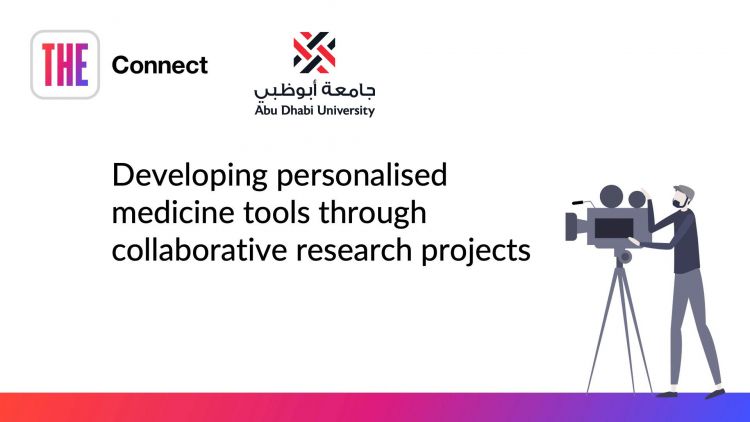Personalised medicine on the frontline against cancer
At Abu Dhabi University, researchers are undertaking groundbreaking collaborative projects to increase our understanding of cancer biomarkers and how they might be used to deliver more effective treatments

Sponsored by

Sponsored by

At Abu Dhabi University, researchers are undertaking groundbreaking collaborative projects to increase our understanding of cancer biomarkers and how they might be used to deliver more effective treatments
In the fight against cancer, information is crucial. The sooner clinicians have the data they need to make a diagnosis, the sooner they can prescribe an effective treatment. Breakthroughs in 21st-century oncology mean that this treatment can be personalised for the patient.
At Abu Dhabi University, researchers have conducted a number of projects with national and international partners that enhance medicine’s understanding of cancer biomarkers and how these can be used to personalise treatment. These biomarkers, presenting in the body as molecules such as proteins, can inform clinicians which treatment has the highest probability of success.
Afsheen Raza is associate professor of molecular biology and cancer research lead at Abu Dhabi University, and her research focus is trained on identifying non-invasive biomarkers of treatment response in cancer patients. “Biomarkers such as tumour-associated antigens and immune checkpoint molecules can serve as predictive biomarkers of response in a longitudinal setting, or in a clinical trial setting,” she says.
Many of the clues that cancer leaves in the body can be found in the immune system. Cancer can trick the body into circumventing an immune response. Some cancerous tumours suppress the immune system by producing large amounts of PD-L1 checkpoint proteins, allowing the tumour to grow. If clinicians can better understand what is happening with a patient’s checkpoint proteins, they might be able to prescribe immunotherapy treatments that block signals from the checkpoint proteins that are inhibiting the immune response, allowing the body to produce the T cells it needs to fight the cancer.
At Abu Dhabi University, researchers have been able to observe and report on cancer patients’ biomarkers, allowing clinicians to make more informed decisions on treatment pathways and deliver personalised medical care to the patients.
“In one study, we were able to see an up and downregulation of new checkpoint molecules, in responding and non-responding lung cancer patients, early on in their treatment regimen,” Raza says. “This is a significant finding because it does stratify patients according to their biomarker expression. It can also help doctors align their treatment regimens according to the biomarker expression and this could potentially impact their clinical outcomes, as well as reducing side effects.”
With cancer, time is of the essence. The sooner the medical intervention, the greater the chance of its success. Here, cancer biomarkers can help. A greater understanding of biomarker expression in patients, and how these can be used to personalise treatment pathways, offers hope for enhanced clinical outcomes.
“Cancer biomarkers as personalised medicine tools for patient stratification and understanding treatment dynamics is the future of cancer management,” Raza says. “Their role is unparalleled and holds significance in the fight against cancer.”
The next step for Raza and her team at Abu Dhabi University is to work closely with their clinical partners in putting together the large prospective cohort studies that will be needed to advance this approach and accurately identify the role of non-invasive biomarkers as personalised medicine tools, paving the way for a new era of cancer treatment.
